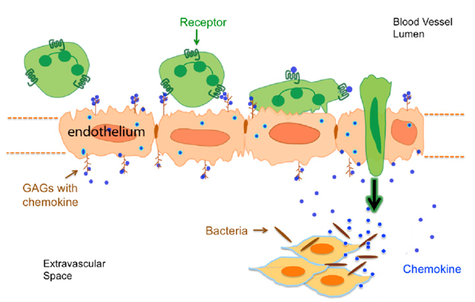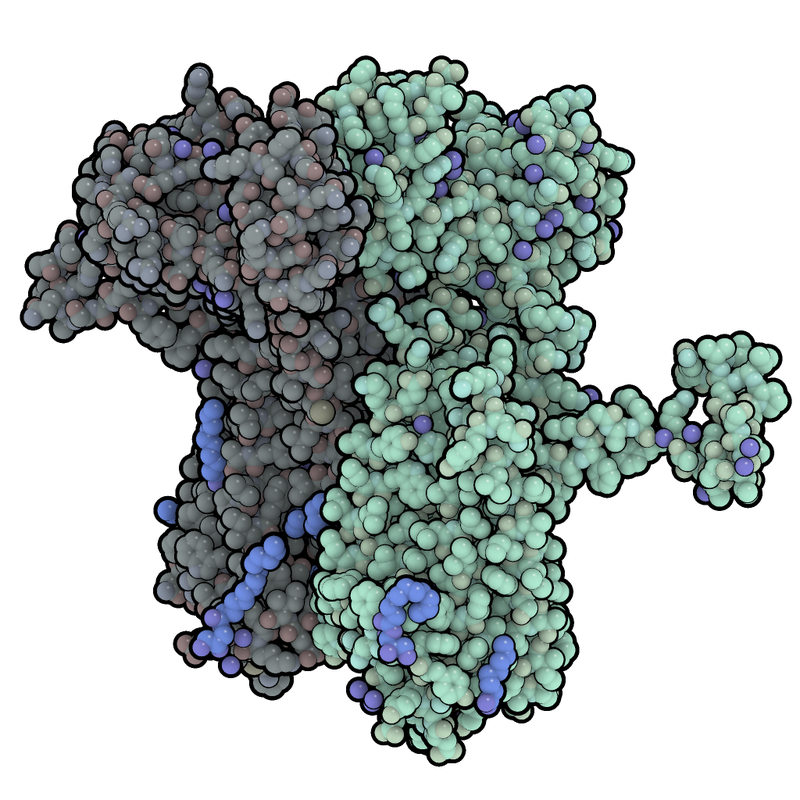About ChemoTactics
|
ChemoTactics, Inc specializes in the efficient production of high-quality human chemokines for research scientists worldwide.
We offer affordable pricing to reduce the overbearing costs of conducting research, especially with bulk orders. Our products include both unmodified and biotinylated chemokines for In Vivo, pharmacological, microscopy and various other studies. Our expertise lies in recombinant chemokine production which can also be applied to other signaling proteins with high levels of activity. Our core technology was utilized to help solve the multiple crystal structures of CXCR4 [2]. Please contact us at info@chemotactics.com if you are interested purchasing or distributing ChemoTactics chemokines. |
Research Institutes using Our Chemokines
|
Bristol Myers Squib, USA
UC San Diego, CA USA Hannover Medical Center, Germany The Moores Cancer Center, CA USA The Scripps Research Institute (TSRI) La Jolla, CA USA University of Piedmont, Italy Regeneron, USA Sanford Consortium for Regenerative Medicine, CA USA Genentech, USA University of Utah, UT USA University of Monash, Australia University of Houston, TX USA UC Berkley, CA USA Tel Aviv University, Israel Pfizer Global R & D, USA University of Georgia, GA USA NIBST, United Kingdom Case Western Reserve University, USA Merck Serono Geneva Research Center, Switzerland Department of Veterans Affairs Medical Center, USA And many more! |
Selected Publications with Chemokines Produced by ChemoTactics
- Wang Z, Moresco P, Yan R, Li J, Gao Y, Biasci D, Yao M, Pearson J, Hechtman JF, Janowitz T, Zaidi R, Weiss MJ, Fearon DT. Carcinomas assemble a filamentous CXCL12-keratin-19 coating that suppresses T cell-mediated immune attack. PNAS Jan 2022 Vol. 119 No. 4. https://doi.org/10.1073/pnas.2119463119
- Chatterjee, T., Johnson-Buck, A. Walter, NG. Highly sensitive protein detection by aptamer-based single-molecule kinetic fingerprinting. Biosensors and Bioelectronics. Vol 216 15 Nov 2022. https://doi.org/10.1016/j.bios.2022.114639
- Zhikai Wang, Ran Yan, Jiayun Li, Ya Gao, Philip Moresco, Min Yao, Jaclyn F. Hechtman, Matthew J. Weiss, Tobias Janowitz, Douglas T. Fearon. Pancreatic cancer cells assemble a CXCL12-keratin 19 coating to resist immunotherapy. bioRxiv 776419; doi: https://doi.org/10.1101/776419. Posted: September 4, 2020
- Torretta S., Colombo G., Travelli C, Boumya S., Lim D., Genazzani A., Brolla A. The Cytokine Nicotinamide Phosphoribosyltransferase (eNAMPT; PBEF; Visfatin) Acts as a Natural Antagonist of C-C Chemokine Receptor Type 5 (CCR5). Cells 2020 Feb; 9(2):496. doi 10.3390/cells9020496 PMID: 32098202
- Wu, B., Chien, E.Y., Mol, C.D., Fenalti, G., Liu, W., Katritch, V., Abagyan, R., Brooun, A., Wells, P., Bi, F.C., Hamel, D.J., Kuhn, P., Handel, T.M., Cherezov, V., Stevens, R.C. Structures of the CXCR4 chemokine GPCR with small-molecule and cyclic peptide antagonists. Science, 2010. 330: 1066-1071. PMID: 20929726
- Ervin E. Kara, Iain Comerford, Cameron R. Bastow, Kevin A. Fenix, Wendel Litchfield, Tracey M. Handel, and Shaun R. McColl. Distinct chemokine receptor axes regulate T helper 9 cell trafficking to allergic and autoimmune inflammatory sites. J Immunol., 191:1110-1117, 2013. PMID: 23797668
- M. O'Hayre, C.L. Salanga, T.J. Kipps, D. Messmer, P.C. Dorrestein, T.M. Handel (2010) Elucidating the CXCL12/CXCR4 Signaling Network in Chronic Lymphocytic Leukemia through Phosphoproteomic Analysis. PLoS One. 5:e11716. PMID:
20661426 - T.M. Handel, Z. Johnson, M. Mack, R. Cirillo, V. Muzio, M. Teixiera, M. Déruaz, F. Borlat, T.N.C. Wells, and A.E.I. Proudfoot (2008). An Engineered Monomer of CCL2 has Anti-inflammatory Properties Emphasizing the Importance of Oligomerization for Chemokine Activity In Vivo. J Leukocyte Biology. 84(4):1101-8. PMID: 18662971




